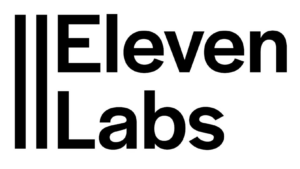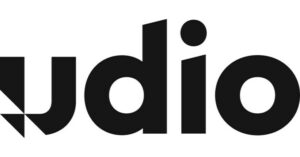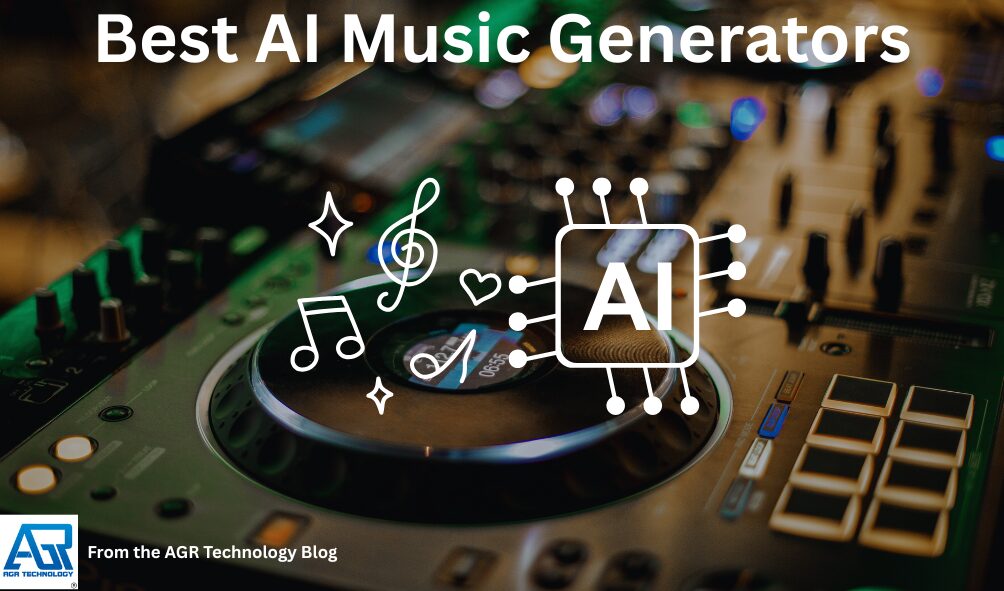Music creation used to require years of training, expensive equipment, and access to professional studios. Not anymore. AI music generators have flipped the script, empowering anyone, from indie filmmakers to podcast hosts to seasoned producers, to create original, high-quality tracks in minutes. Whether you need a moody cinematic score, a catchy pop beat, or royalty-free background music for a YouTube video, these tools deliver without very costly or requiring a music theory degree.
But with dozens of platforms flooding the market in February 2026, how do you pick the right one? The answer depends on your project’s needs: audio quality, licensing terms, genre flexibility, and how much control you want over the final product. This guide breaks down the top AI music generators, what sets them apart, and how to choose the platform that fits your creative workflow.
🏆 Top AI Music Generators For February 2026
Here’s a breakdown of the leading AI music generators this year, each excelling in a distinct area. Whether you need vocals, cinematic scores, or real-time streaming music, there’s a platform built for your workflow.
Elevan Labs Best all round platform and established AI audio platform

Pros:
- Fast, High-Quality Output: Generate studio-quality tracks in minutes, saving time and effort in the creative process.
- User-Friendly Interface: Designed for all skill levels, from beginners to professionals, Eleven Music allows users to craft music using simple, natural language prompts.
- Commercial Licensing: Thanks to partnerships with key music industry organizations like Kobalt Music Group, the platform ensures that all generated content is cleared for commercial use without the fear of copyright infringement.
- Customizable Tracks: Full control over the creation of songs, including the ability to edit individual sections, adjust genres, instruments, and mood, ensuring that your tracks align with your creative vision.
- Multilingual Support: Eleven Music can generate vocals in multiple languages, including English, Spanish, German, and Japanese, which enhances its appeal to a global audience.
- Affordable Entry: With a credit-based system and various pricing plans, users can choose a plan that fits their needs, whether they are hobbyists or large businesses.
Cons:
- Pricing for Heavy Users: While the entry-level plan is affordable, the cost of the higher-tier plans may become expensive for creators needing high-volume usage or extended features.
- Limited Customization: While Eleven Music offers flexibility in terms of genre and mood, users may find the level of detailed control over individual music elements to be somewhat restricted compared to traditional music production software.
- Repetitiveness of Tracks: Some users may find that the AI-generated music can sound repetitive, particularly when working with similar prompts or genre styles.
- Dependence on Text Prompts: The reliance on natural language prompts for music creation may limit the depth of control for users who prefer more hands-on or technical involvement in their tracks.
Eleven Music’s combination of easy-to-use AI tools, commercial licensing, and quick music generation make it an appealing option for content creators and businesses looking for affordable, professional-grade music. However, for users requiring more intricate customization or a higher degree of creative freedom, alternative platforms may offer more specialized features.
Soundraw – Best for background music

Soundraw is an AI-driven music generation platform designed for content creators, filmmakers, podcasters, and musicians. The tool enables users to create original, royalty-free tracks quickly and easily, with customizable options for tempo, instrumentation, genre, and mood. Unlike traditional stock music libraries, Soundraw offers real-time editing and granular control over each element of a composition, allowing creators to produce music that seamlessly complements their video or audio projects. Its intuitive interface makes it accessible for both beginners and experienced users, while regular updates ensure the platform stays aligned with current music trends.
Pros:
- Customizable AI music: Adjust instruments, tempo, key, mood, and genre to fit any project.
- Royalty-free tracks: Use music commercially without licensing concerns.
- Intuitive interface: Accessible for users of all skill levels with real-time editing.
- Time-saving workflow: Quickly generate multiple track options and fine-tune them for video, podcasts, or streaming.
- Regular content updates: Expanding library keeps tracks fresh and relevant.
Cons:
- Limited genre variety: Some project needs may be constrained by the available genres.
- Subscription-based: Continuous access requires a paid plan.
- No offline use: Requires an internet connection to operate.
- Learning curve for new users: Advanced customization features may require some exploration.
- Dependent on updates: Output quality and diversity rely on consistent software updates.
Suno AI – Another Leading AI Music Generator

Suno AI is an advanced AI music generation platform that allows users to create full-length songs—including vocals, instrumentals, and lyrics—using simple text prompts. Designed for musicians, content creators, marketers, and hobbyists, the platform supports a wide range of music styles from pop and electronic to classical and jazz. Users can input their own lyrics or rely on Suno AI to generate complete songs, with options to customize tempo, instruments, and mood. The platform emphasizes ease of use and rapid music creation, enabling tracks to be produced within minutes, while also offering multi-language support and intuitive download options for personal or commercial use.
Suno AI has evolved quickly since its launch, incorporating tools like Personas to remember user styles, Covers for reinterpretation, and proprietary watermarking for originality tracking. While its technology delivers impressive audio quality and vocal realism, the platform has faced legal scrutiny over copyright concerns, as well as limitations in stem separation, voice diversity, and fine-grained editing.
Pros:
- High-quality music generation: Professional-level vocals and instrumentals that sound authentic across multiple genres.
- Rapid creation: Songs can be generated in minutes, saving time for creators and content producers.
- User-friendly interface: Intuitive design suitable for beginners and advanced users alike.
- Customizable outputs: Options for lyrics, style, mood, and instrument adjustments, with tools like Personas to maintain consistent style.
- Freemium and flexible pricing: Generous free credits plus paid plans that allow commercial use and large-scale song production.
Cons:
- Copyright and ethical concerns: AI is trained on a mixture of publicly available and copyrighted music, leading to ongoing legal scrutiny.
- Limited editing capabilities: Fine-tuning vocals or instruments can be inconsistent, making it challenging to perfect tracks.
- Voice diversity and style constraints: Certain genres and culturally specific vocal styles are underrepresented.
- Output variability: Songs may occasionally produce repetitive lyrics or awkward vocal phrasing, requiring multiple attempts or external editing.
- Device and format dependency: Optimal use requires compatible devices, and professional-grade stems are limited, often necessitating additional processing.
Suno AI remains a leading tool in AI-assisted music creation, offering fast, versatile, and largely high-quality music generation for both personal and commercial projects. While it has notable strengths, users should be aware of legal, technical, and creative limitations when integrating its outputs into professional workflows.
Udio – Best for Creative Control

Udio AI is an advanced cloud-based music creation platform that leverages artificial intelligence to transform text prompts into fully produced music tracks. Founded in 2023 by former Google DeepMind researchers, Udio empowers both professional musicians and hobbyists to create original songs without extensive musical training. Users can generate melodies, add lyrics, customise genres, adjust instruments, and even extend or remix tracks. The platform supports exporting individual stems for use in digital audio workstations (DAWs) like Ableton Live or FL Studio, making it versatile for content creators, marketers, and independent artists. With a mix of free and paid subscription plans, Udio aims to democratize music production while offering a professional-grade sound experience.
Pros:
- User-Friendly Interface: Intuitive dashboard suitable for beginners and experienced users alike.
- High-Quality Output: AI-generated tracks feature polished production, clear vocals, and professional mixing.
- Versatile Features: Includes lyric generation, track inpainting, remixing, and extension tools.
- Genre Flexibility: Supports multiple genres and languages, allowing users to experiment across musical styles.
- Commercial Use: Paid plans allow copyright-free music that can be used for videos, podcasts, or social media.
- Export Options: Individual stems can be exported to DAWs for further editing or professional production.
- Free Plan Availability: Offers limited daily credits, enabling users to try the platform without upfront cost.
Cons:
- Advanced Features Paid-Only: Full customization, faster generation, and extended editing tools require a subscription.
- Inconsistent Output: Some AI-generated tracks may include robotic vocals, off-key notes, or occasional gibberish lyrics.
- Track Length Limitations: Free and standard plans restrict track duration and credit usage.
- Learning Curve for Pro Features: Deep customization options may be complex for casual users.
- Customer Support Concerns: Free-tier users have limited access to official bug reporting channels, impacting troubleshooting.
- Occasional “Artificial” Feel: AI-generated music can lack nuanced human expression in certain styles.
AIVA – Best for Classical and Cinematic Music

AIVA is a leading AI-powered music composition platform that enables users to create high-quality, original tracks quickly and efficiently. Designed for musicians, content creators, and businesses, it leverages advanced deep learning algorithms and music theory principles to generate orchestral, cinematic, and contemporary compositions. Users can customise tempo, mood, genre, and instrumentation, while an integrated DAW-like editor allows precise MIDI editing and application of professional audio effects. AIVA also offers gamified features, a curated AI-composed radio, and flexible export options, making it suitable for both novices and professional composers seeking copyright-safe music for commercial or personal projects.
Pros:
- Advanced AI-driven compositions across diverse genres (classical, cinematic, electronic, jazz, and more)
- Customisable tracks via generation profiles, preset styles, or user-provided MIDI/audio files
- Integrated DAW-style editor for precise track control, including MIDI editing and audio effects
- Copyright-safe music creation with monetisation options on platforms like YouTube and Twitch
- Intuitive interface accessible to both beginners and professional composers
- Fast track generation, saving time for content creation and production workflows
- Gamified features and AI-composed radio for inspiration and engagement
- Supports multiple export formats: MP3, WAV, MIDI, and stems
Cons:
- Full copyright ownership and advanced features require the Pro subscription plan
- Some tracks may require manual editing for professional-quality output
- AI-generated music may lack the emotional nuance of human-composed pieces
- Reliance on internet connectivity for cloud-based generation and editing
- AIVA remains a powerful, versatile tool for anyone looking to streamline music composition while maintaining creative control, offering a unique blend of AI innovation, professional-grade functionality, and user-friendly design.
What Are AI Music Generators?

AI music generators are software platforms that use artificial intelligence, typically deep learning models, to compose original music from scratch. You input a text prompt, select parameters like genre or mood, or tweak a template, and the AI churns out a complete track, melody, or beat within seconds.
Under the hood, these tools rely on neural networks trained on vast datasets of existing music. They learn patterns in melody, harmony, rhythm, and instrumentation, then generate new compositions that mirror those patterns without directly copying them. Some platforms create full songs with vocals: others specialize in instrumentals, loops, or stems for mixing.
What makes AI music generators so appealing is their accessibility. You don’t need to know how to play an instrument, read sheet music, or navigate a digital audio workstation (DAW). Just describe what you want, “upbeat electronic track with synth leads”, and the AI handles the rest. It’s like having a studio session on demand, minus the studio.
How to Choose the Right AI Music Generator

Not all AI music generators are built the same. Some excel at cinematic orchestration, while others nail lo-fi beats or pop vocals. Choosing the right platform starts with understanding your project’s demands and matching them to a tool’s strengths. Here are the key factors to weigh.
Audio Quality and Output Formats
Audio quality is non-negotiable if you’re producing content for commercial release, film, or professional media. Leading platforms deliver studio-grade output, crisp, dynamic, and free of the tinny or robotic artifacts that plagued earlier AI music tools.
Most platforms export tracks in MP3 format by default, which works fine for social media, podcasts, or casual projects. But if you’re scoring a film, producing an album, or integrating music into a DAW, you’ll want lossless formats like WAV. Premium tiers often unlock WAV and STEM exports, giving you individual instrument tracks (drums, bass, melody, etc.) for granular mixing and mastering.
MIDI files are another bonus for producers who want to tweak melodies or chord progressions manually. Check the platform’s export options before committing, especially if you plan to layer AI-generated music with live instruments or vocals.
Licensing and Commercial Rights
Licensing is where things get tricky, and where you can’t afford to skim the fine print. Many AI music generators offer free tiers, but those tracks often come with restrictions: no commercial use, mandatory attribution, or even revoked rights if you cancel your subscription.
Paid plans typically grant full commercial rights, meaning you can monetize the music on YouTube, Spotify, or in client projects without worry. Some platforms give you outright ownership of the generated tracks: others retain copyright but license the music to you for specific uses.
If you’re creating content for monetization, whether it’s ads, streaming, or film distribution, invest in a subscription that explicitly grants commercial rights. Double-check whether the license covers worldwide distribution, derivative works, and perpetual use. The last thing you want is a copyright claim derailing a project months after launch.
Customization and Control Options
Flexibility separates the best AI music generators from the rest. Basic tools let you pick a genre and mood, then spit out a generic track. Advanced platforms offer deep control: tempo, key, instrumentation, song structure, chord progressions, and even individual section editing.
For example, if you need a 90-second intro with a slow build, a drop at the 30-second mark, and a fadeout ending, the best platforms let you specify that. Some tools allow you to adjust basslines, swap instruments mid-track, or regenerate specific sections without starting over.
This level of customization matters when you’re matching music to video, branding, or a specific emotional arc. If you’re just generating background ambiance, less control is fine. But for creative projects where the music needs to hit precise cues, prioritize platforms with robust editing and iteration features.
Benefits of Using AI Music Generators
AI music generators aren’t just convenient, they’re democratizing music creation in ways that were unimaginable a decade ago. Here’s why creators across industries are adopting them.
Accessibility for Everyone
You don’t need a Berklee degree or a home studio to create professional-sounding music. AI tools level the playing field, giving non-musicians the power to produce original tracks that sound polished and purposeful. A podcaster in Kansas City has the same access to quality music as a Hollywood producer.
Unmatched Speed
What used to take hours, or days, of composition, recording, and mixing now happens in minutes. Need a 60-second intro for a video? Generate it, download it, and move on. For creators on tight deadlines, this speed is transformative.
Cost-Effectiveness
Hiring a composer or licensing stock music can run hundreds or thousands of dollars per project. AI music generators offer unlimited tracks for a monthly subscription, often less than the cost of a single stock track. For small businesses, YouTubers, and indie creators, the savings add up fast.
Tailored Customization
Stock music libraries offer generic tracks that dozens of other creators are using. AI generators create unique compositions tailored to your exact specs: genre, mood, tempo, instrumentation. Your music is yours, and it fits your project perfectly.
Royalty-Free Peace of Mind
With a proper subscription, AI-generated music is royalty-free and cleared for commercial use. No more worrying about copyright strikes, licensing disputes, or surprise ASCAP invoices. You create, export, and use, simple as that.
Limitations to Keep in Mind
AI music generators are powerful, but they’re not perfect. Here are the constraints and trade-offs you should understand before diving in.
Creative Limitations
AI can generate music that sounds good, but it doesn’t feel the way a human composer does. Subtle emotional nuances, intentional dissonance, or the kind of creative risk-taking that defines great art, these are still beyond most AI models. If your project demands deeply personal or avant-garde composition, human talent remains irreplaceable.
Licensing Pitfalls
Free tiers are tempting, but they often come with strings attached: no commercial use, mandatory attribution, or revoked rights if you stop paying. Always read the licensing terms before publishing or monetizing AI-generated music. A platform that seems free upfront might cost you later if you can’t legally use the tracks.
Variable Audio Quality
Not all platforms deliver consistent quality. Some tracks sound studio-ready: others have artifacts, muddy mixing, or unnatural transitions. Quality often correlates with subscription tier, so budget platforms or free tools may produce subpar results.
Ethical and Copyright Concerns
Some AI music generators train their models on copyrighted music, raising questions about originality and fair use. While most platforms assert that generated tracks are legally distinct from training data, the ethical landscape is still evolving. If you’re sensitive to these issues, research a platform’s training sources and policies before committing.
Conclusion
AI music generators in 2025 have matured into legitimate creative tools, offering quality, speed, and flexibility that rival traditional music production methods. Whether you’re a filmmaker scoring a documentary, a YouTuber needing royalty-free background tracks, or a game developer building an immersive soundscape, there’s a platform designed for your needs.
Suno AI leads the pack for overall quality and ease of use, while Udio delivers unmatched creative control. Soundraw dominates the background music niche, AIVA remains the go-to for cinematic scores, Mubert excels at real-time generation, and Beatoven nails mood-driven compositions. Each platform has its strengths, and the best choice depends on your project’s genre, licensing needs, and how much control you want over the final output.
Before committing to a platform, test the audio quality, review the licensing terms, and experiment with customization options. Most tools offer free trials or limited free tiers, so you can kick the tires before paying. And remember: AI is a tool, not a replacement for creativity. Use it to amplify your vision, streamline your workflow, and make music creation accessible, but always bring your own creative voice to the table.
Note: AGR Technology may receive a commission on sales generated by partner links on this page, but this has no bearing on opinions or evaluations and is at no cost to you.
Why trust AGR Technology
Alessio Rigoli created AGR Technology in 2013 as a YouTube channel and then as a tech-focused blog. It covers themes such as Android, Cyber Security, Blockchain, and Education Technology. It now provides a variety of services such as website development, hosting, software development, and digital marketing. The business specializes in content publication and is dedicated to providing cutting-edge technology solutions. AGR Technology does not take compensation for high positions on its lists and instead conducts impartial evaluations. Clients from diverse industries are served by our business.
Key Takeaways
- The best AI music generators in 2025 enable anyone to create professional, original tracks in minutes without requiring musical training or expensive equipment.
- Suno AI leads as the best overall AI music generator, delivering full songs with high-quality vocals and instrumentals across diverse genres with straightforward commercial licensing.
- Choosing the right platform depends on your needs: audio quality, export formats like WAV or STEM files, commercial licensing terms, and customization depth for tempo, key, and instrumentation.
- AI music generators offer major benefits including unmatched speed, cost-effectiveness compared to hiring composers, and royalty-free peace of mind for content creators and businesses.
- Top specialized tools include Udio for creative control, Soundraw for background music, AIVA for cinematic scores, Mubert for real-time streaming, and Beatoven for mood-based compositions.
- Always review licensing terms carefully before monetizing AI-generated music, as free tiers often restrict commercial use or require attribution that could limit your projects.
Frequently Asked Questions
What is the best AI music generator in 2025?
Suno AI is widely regarded as the best overall AI music generator in 2025, offering full songs with vocals, instrumentals, and harmonies across multiple genres. It delivers studio-quality output with expressive vocals and intuitive controls, making it ideal for creators needing polished, radio-ready tracks quickly.
Can I use AI-generated music commercially on YouTube?
Yes, but only if your subscription includes full commercial rights. Free tiers often restrict commercial use or require attribution. Always verify that your plan grants worldwide commercial licensing and covers monetization on platforms like YouTube, Spotify, or client projects before publishing.
Do AI music generators require music theory knowledge?
No, AI music generators are designed for accessibility and don’t require any music theory training. You simply input a text prompt describing the genre, mood, or tempo you want, and the AI creates a complete track in minutes without needing to play instruments or read sheet music.
Which AI music generator is best for film scoring?
AIVA (Artificial Intelligence Virtual Artist) excels at classical and cinematic compositions, making it the top choice for film scoring. Trained on classical masterworks, it generates sweeping orchestral scores and dramatic soundtracks with emotional depth, perfect for movies, games, and theater productions.
How much does an AI music generator subscription cost?
AI music generator subscriptions typically range from $10 to $30 per month for standard plans, with enterprise tiers costing more. This is significantly cheaper than hiring composers or licensing stock music, which can cost hundreds per track, making AI tools highly cost-effective for regular content creators.
Can AI music generators create vocals and lyrics?
Yes, advanced platforms like Suno AI can generate complete songs with vocals and lyrics. You can input custom lyrics or let the AI create them, and the system adjusts phrasing, rhythm, and melody to match your chosen style, producing expressive and intelligible vocal performances.
Source(s) cited:
[Online]. Available at: https://www.reddit.com/r/AI_Music/comments/1lj6o55/anybody_use_soundraw_got_any_notes_and_suggestions/ (Accessed: 19 October 2025).
AIVA Review [Online]. AI Composting Tool. Available at: https://incompetech.com/music/ai/AIVA/AIVA.html (Accessed: 19 October 2025).

Alessio Rigoli is the founder of AGR Technology and got his start working in the IT space originally in Education and then in the private sector helping businesses in various industries. Alessio maintains the blog and is interested in a number of different topics emerging and current such as Digital marketing, Software development, Cryptocurrency/Blockchain, Cyber security, Linux and more.
Alessio Rigoli, AGR Technology
![logo-new-23[1] logo-new-23[1]](https://cdn-ihdfn.nitrocdn.com/eZVJvoSTyVixkEUySRKiaseNtUlmgCyu/assets/images/optimized/rev-b7ced37/agrtech.com.au/wp-content/uploads/elementor/thumbs/logo-new-231-qad2sqbr9f0wlvza81xod18hkirbk9apc0elfhpco4.png)

